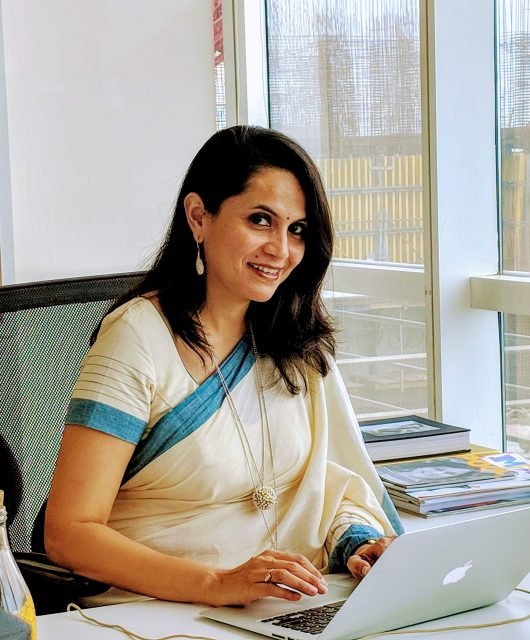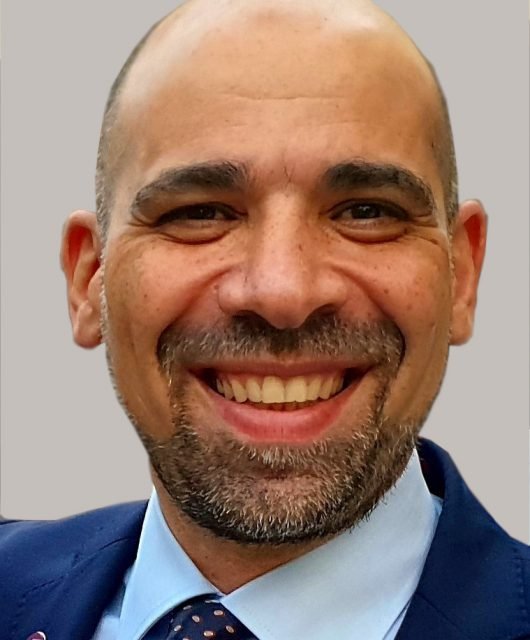Part II In The Digital Transformation Series

Humanizing the constant progress in and around us is so critical in our endlessly moving economy. As an old mentor of mine used to say, “We are all human, so be human”. In my last piece, I wrote about the post-digital era – how ordinary people are years ahead of the business machine and some trends that business leaders can look forward to. Let us hone in on one aspect of transformation that is usually missed out on – actual humans.
The dehumanization of ‘humans’ in the pre-pandemic world is irreconcilable with what we have all experienced in the past 18 months – no longer can or should we use the word consumers. They are people. No longer can we solely focus on quarterly earnings or gross national product to power the world we once knew. Strengthening families and communities, measuring happiness and fulfillment are more critical and longer lasting. No longer can we solely focus on physical health. We now know that mental health is health – that burnout, depression and anxiety are repressing true flourishing. At this point, you might be asking yourself, “But George, what does this have to do with transformation?” Give me a few minutes to get there …
In the popular movie ‘The Matrix’, the protagonist, Neo, comes to grips with the true state of his world. Humans are hardwired to feed ‘The Machine’. No more, no less. They are in an infinite loop, themselves sustaining these technological machines that they once designed and built. The Machine cares for nothing except its own survival. In the real world, The Machine is already here. It only cares for progress, growth, and revenue no matter the cost. How so?
To put this into context – the next automation wave that is coming will be unlike anything we have seen before – it will further the digital divide and drive greater inequality. While some commentators predict that it will only power hundreds of millions of jobs – I find it difficult to believe that we can magically train traditional blue-collar workers to ‘digitize’, an elitist claim at best.
This will not only impact the average worker but also companies at large. If you think the Big Tech companies of yesteryear – the FAANGs, will remain in power over the next decade, I have some troubling news for you. They will not be. We are already seeing the downwards trajectory in traditional corporations like GE and IBM but we will soon see it across every single sector. The unicorn startups powered by highly liquid venture capitalist cash are not only in Silicon Valley anymore, but also in Cairo, Warsaw, Berlin, and Singapore and will soon smash through past power structures. The Shopifys, Snowflakes and Robloxes of the world are becoming hundred-billion-dollar behemoths faster than ever before and no one is ready for this disruption. This means that decades long careers at one company, fixed investments in the stock market and remaining idle and stagnant in your education cycle while the world constantly morphs is going to impact everyone, everywhere, including you the reader.
From a human perspective, what can companies do in this tumultuous era? How can we work in parallel with ‘The Machine’ – and even push back and be ahead of it? How can we focus on ordinary people and yet drive lasting change? Let us look at three core shifts in thinking to ‘re-humanize’ transformation. I have also taken the liberty of adding some companies to keep an eye on; this may be of interest to some – for onboarding their solutions, their methodologies, and ways of working or a mixture of all three. Be sure to check them out!
- Educate, enlighten, and share. Upskilling is a fallacy. So are undergraduate degrees. Learning must become a daily ethos. Some friends and colleagues wonder why I post so much open material on solutions, technologies and new trends on LinkedIn when competitors might see it or someone may use it and take credit themselves – I do it because as Adam Grant, an organizational psychologist, says, “one of the clearest barometers of curiosity is how often you share ideas and insights with others. A hallmark of discovery is bursting with excitement to tell people what you’ve found.” If everyone is a competitor, then no one is an ally. In today’s world, everyone is an ally – a competitor can become a friend (think about how Pfizer and BioNTech were partnered to create a historical vaccine or how Kia and Uber are working together on electric vehicles). Sharing knowledge means someone, somewhere, will benefit. If you are a hoarder of wealth, you obtain zero interest. If you share what you know, you become a network effect. The jack of all trades is not the master of none, but the master of multiples. Share what you know. Company Watchlist: Scoutible, BetterUp, Bubble.
- Focus on product and values. One of my favorite companies is Veja, an organic, fair-trade footwear company that has an interesting ethos: ‘reality, not fiction’. This means they do not advertise. Zero ads, no brand ambassadors, nothing (though they sent emailers!). They would rather invest it back into their product and the communities that make their sneakers. I am sure some marketing stakeholders may give me some flak for saying this, but I am trying to relay a key point here. Your product matters. If you do not have a half-decent product, no one is going to sign up for your half-baked lead generation campaign. People are people – again they are not ‘consumers’ and they are more informed than ever. If you attempt to green or blue wash and fail to deliver on a third-party auditing report, you will be ignored. If you appear to disrupt social trends, but still offshore your production lines to slave shops in the developing south, you will be boycotted. Digital transformation or not, your product and the values that enshrine them matter. The same goes for every individual – you are your own product – the way you treat the people around you reflect your own persona and value system. Be real, be transparent. Company Watchlist: Bite Toothpaste Bits, Fairphone, Givz, Tony Chocolonely.
- Put people first. In the throes of the pandemic, I experienced serious burnout – insomnia, fatigue and disinterest that had overtaken my work (and personal) life. Thankfully I have a fantastic manager and leadership team at Publicis Groupe that helped me through it. Most people are not so lucky – hence ‘the Great Resignation’, where three percent of the American labor workforce resigned in September alone. That is why individuals should advocate for and companies should drive a human agenda – one that seeks to put workers above profits, place limits over endless work and work on work-life synchronization. How? Expanding insurance policies to buffer mental health is one. Another is to provide financial wellness to help employees better prepare for their futures. Expanding parental and personal care leave may be methods of limiting excessive work but will also not do much if people come back to the same overbearing work streams. This may mean possibly scaling down workdays or even setting up a daycare in your office to support new parents. Governments, think-tanks, and everyday people are coming up with brilliant ideas to make life better for everyone – let us embrace some of them. Company Watchlist: Patagonia, Hubspot, 23andme
In my next article, we will look at how companies are transforming and what firms can do today to drive their transformation agendas. Until then, be human, stay human.





